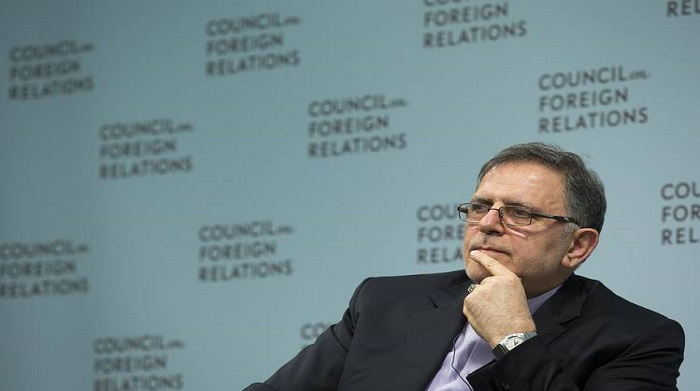Iran and the World Banking Community: A Glass Half Full

The process of normalization of Iran's international banking relations has been underway ever since the nuclear agreement entered its implementation phase in mid-January 2016, albeit at a slow pace. No doubt, this process continues to be hampered by the lingering non-nuclear sanctions by both the US and the European Union, nonetheless there is reason for growing optimism that the existing hurdles will likely diminish in importance over time and, indeed, there is room for guarded optimism.
Already, several small European banks have begun to do business with Iran, including Italian, Austrian, and Turkish banks, thus breaking the ice that has become rather glacier-like due to several years of sustained sanctions. Also, Iran is now back in the SWIFT's orbit, although some database upgrade is still in the works, but according to Iran's banking officials this particular issue has been resolved.
As indicated by Iran's head of Central Bank, Valiolah Seif, in his recent press interviews, part of the problem has to do with the internal banking problems in Iran, that require modernization in order to be eligible for transnational business with foreign banks. Perhaps a reform of Iran's banking system is called for and somewhat overdue, an issue that requires steady private-public cooperation.
The good news, building business confidence for Iran, is that the IMF has given an upbeat assessment of the Iranian economy, citing impressive progress since the nuclear deal. This, together with the steadfast efforts by the government of Dr. Hassan Rouhani to expedite the process of streamlining the business regulations and facilitating foreign trade, ought to contribute to the government's key agenda of reintegrating Iran's economy in the international community.
Needless to say, much depends on the outcome of the present Iran-US discussions on how to assure the foreign banks regarding Iran business, which requires transparent directives from the US Treasury, in light of the recent meeting of Mr. Seif and the officials of US Treasury in Washington. This is, unfortunately, a politicized issue, pitting the Republicans against the Democrats, in light of the stated objection of Paul Ryan, the Speaker of the House of Representatives, to Iran's access to US dollar. As a result, there is a potential stalemate between the White House and the US Congress regarding Iran, that may have serious negative consequence for the nuclear agreement, if it turns out that in the election year the White House is averse to taking politically-cumbersome initiatives on Iran; Iran may have to bite the bullet and take the side of patience, hoping that a democrat would win the presidential elections come this November and then take the appropriate measures necessary for the longevity of the nuclear deal; if, on the other hand, the White House is captured by a Republican such as Donald Trump of Ted Cruz, both of whom are on record opposing the agreement, then we are likely to witness more, rather than less, problems gripping the nuclear agreement. Of course, even a Republican president would face considerable difficulty in scuttling the nuclear deal, which is multilateral in nature and favored in the international community, with rare exceptions.
On the whole, then, it is possible to make the tentative conclusion that when it comes to Iran and international banking, the glass is becoming half full, rather than half empty, given the logic of progression toward more and more western and other banks opening up to Iran. By the year's end, the picture can indeed be much more positive than is the case right now, assuming that Iran's diplomats negotiate with due energy and foresight to remove the existing bottlenecks stemming from both external and internal sources.
A steady progress in terms of ingratiating the foreign banks with Iran will undoubtedly strengthen the hands of Rouhani government to pursue its economic agenda without getting bogged down in domestic turmoil. Having prioritized the nuclear agreement over the past two years, the Rouhani administration must visibly show the tangible results to the population or the latter will lose faith and turn to other factions. This too cannot and should not be overlooked by the western and other governments, who have praised the administration's pragmatic realism. Optimistically speaking, then, the prospects for a qualitative leap forward in terms of Iran's re-integration in the global financial community seem positive, irrespective of the present reality that bespeaks of largely frozen relations. Yet, appearances can be deceiving and one must contextualize the issue and take into consideration the underlying dynamism that is pointed in the direction of increasing evaporation of the climate of fear, hesitation, and uncertainty among the world's bankers with respect to Iran. After all, the some 140 trade delegations that have arrived in Iran over the recent months have not come for sightseeing, but rather to asses the Iranian market and to enter into deals, not just paper agreements or memorandum of understanding. If the present pattern of slow but steady improvement of Iran's banking relations with the outside world continues, then it is a sure bet that that a parallel process marking significant new trade and economic agreements will take shape, exonerating the nuclear agreement's Iranian architects.

